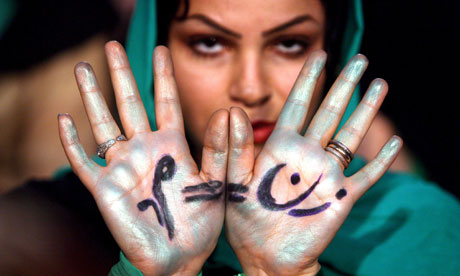
On Wednesday, Iran was elected to a second four-year term on the United Nations’ Commission on the Status of Women (CSW), a body charged with advancing gender equality and the rights of women around the world. The move was strongly criticized by the Obama administration, who denounced Iran’s long record of repressing women’s rights.
Iran’s ascension to such a body, given its poor human rights record, warrants concern from the international community. At the same time, this may an important opportunity to shine a spotlight on the issue of women’s right’s inside of Iran. It should also be viewed as an opportunity to further press Iran to operate within the framework of the UN and to allow the Special Rappateur on Human Rights in Iran, Ahmed Shaheed, to visit Iran.
On the first count, Iranian President Hassan Rouhani shined a spotlight on women’s rights this week on the occasion of Women’s Day, saying “I, as the head of the government, confess there are still so many deficiencies with regards to the vindication of women’s rights.” He described “gender injustice” in Iran and lamented that “there are still women who are suffering from and even afraid of men’s unjust behavior – and this era must end.”
United Nation Special Rapporteur on Human Rights in Iran Ahmed Shaheed released a report in March that documented the numerous violations of women’s rights and the imprisonment of many prominent women’s rights journalists, lawyers, and activists. His report describes the institutionalized discrimination of women that prevents fair court procedures, discourages women to come forward with rape charges, and many other forms that impact women’s everyday life. President Rouhani’s comments acknowledging some of these issues represents a small signal towards an effort to address gender inequality.
Rouhani’s election was based on a platform of not only improving relations with the West and negotiating an end to the nuclear standoff, but also improving human rights and building an inclusive government. Nearly ten months into his presidency, many analysts have criticized his short comings in regard to improving human rights – especially the rights of women. At the same time, women in Iran represent the majority of university students, even in the sciences that are traditionally dominated by males. Family planning laws are considered liberal in the region, and women have seen an increasing role in political and economic affairs over the last decade.
While Iran’s election to the Commission on the Status of Women should raise concerns if it confers legitimacy to Iran’s human rights and women’s rights record, multilateral engagement on these issues should remain a top priority. Cooperating and working with the international community can provide a path to establishing greater accountability of what is happening inside of Iran and addressing the urgent need to address women’s rights.
Back to top